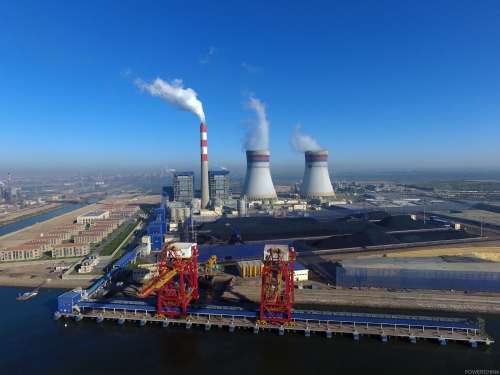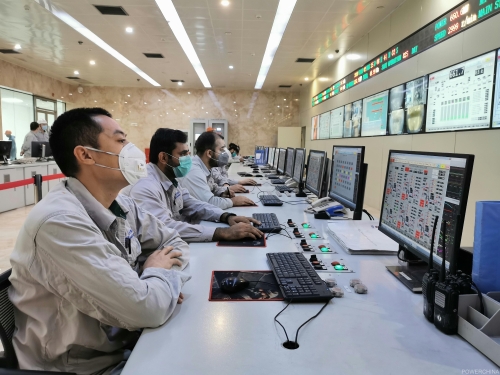As of midnight on Dec 31, the Port Qasim Coal-fired Power Plant in Pakistan had generated 8.89 billion kilowatt-hours of power, completing 109.8 percent of the annual power generation plan. The power facility was invested and constructed by POWERCHINA.
It is the first implementation project and the first large-scale electric energy project of the China-Pakistan Economic Corridor.
 |
|
Pakistan's Port Qasim Coal-fired Power Plant is the first large-scale electric energy project of the China-Pakistan Economic Corridor. [Photo/POWERCHINA] |
With an installed capacity of 2×660MW and a designed annual power generation capacity of 9 billion kWh, the power plant has achieved 1,137 consecutive days of safe operations. It has generated 25.454 billion kWh of power since its first unit was put into operation in November 2017.
In 2020, in response to the unexpected COVID-19 pandemic, the Port Qasim Port Power Generation Co was able to implement disease prevention and control measures while maintaining project production and operation.
During the pandemic, the company overcame disadvantages such as a shortage of personnel and limited coal supply. It also protected the rights and interests of more than 700 local employees working at the power station.
 |
|
Chinese and Pakistani workers wear masks while working at the Port Qasim Coal-fired Power Plant. [Photo/POWERCHINA] |
POWERCHINA actively fulfilled its social responsibilities and organized donations to Pakistan to fight the pandemic.
The company has donated more than 20,000 masks, 2,000 face shields, 50 boxes of disinfectant and 300 sets of protective clothing to Pakistani hospitals, governments and organizations.
At present, the Port Qasim Coal-fired Power Plant has become the most technologically advanced green and environmentally friendly power station. It has the highest load capacity, power generation capabilities and the lowest on-grid electricity price in Pakistan, making positive contributions to Pakistan's economic and social development and improving people's livelihoods.